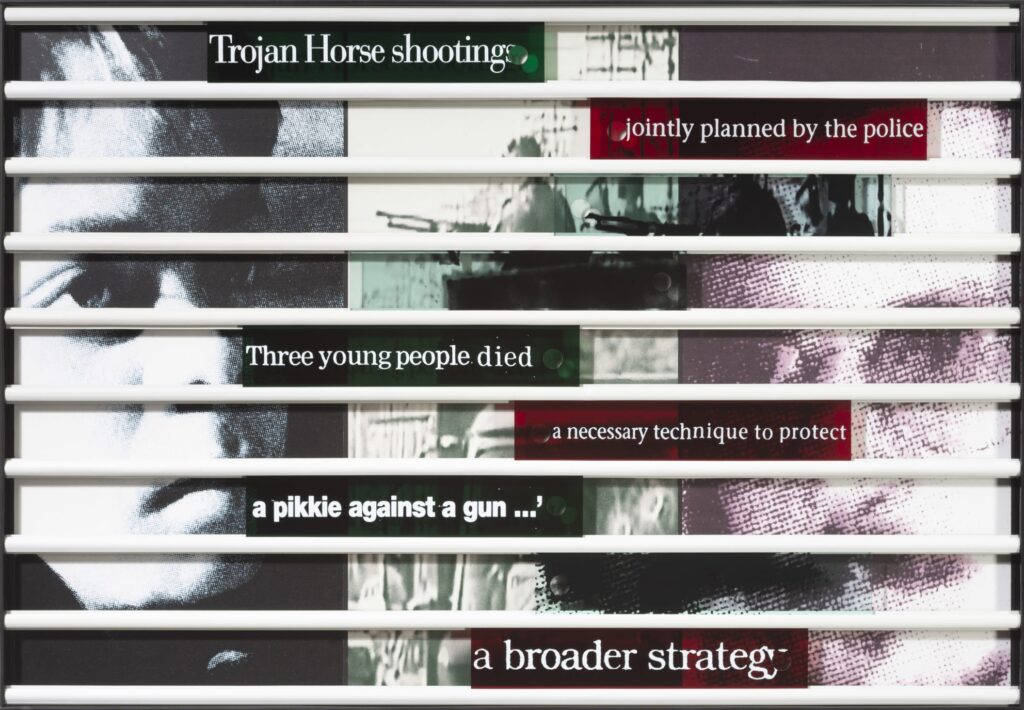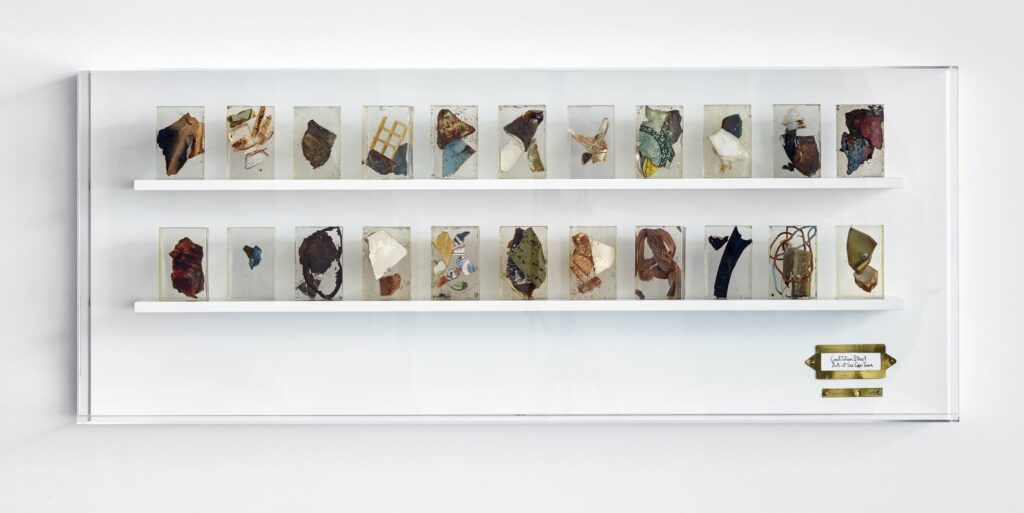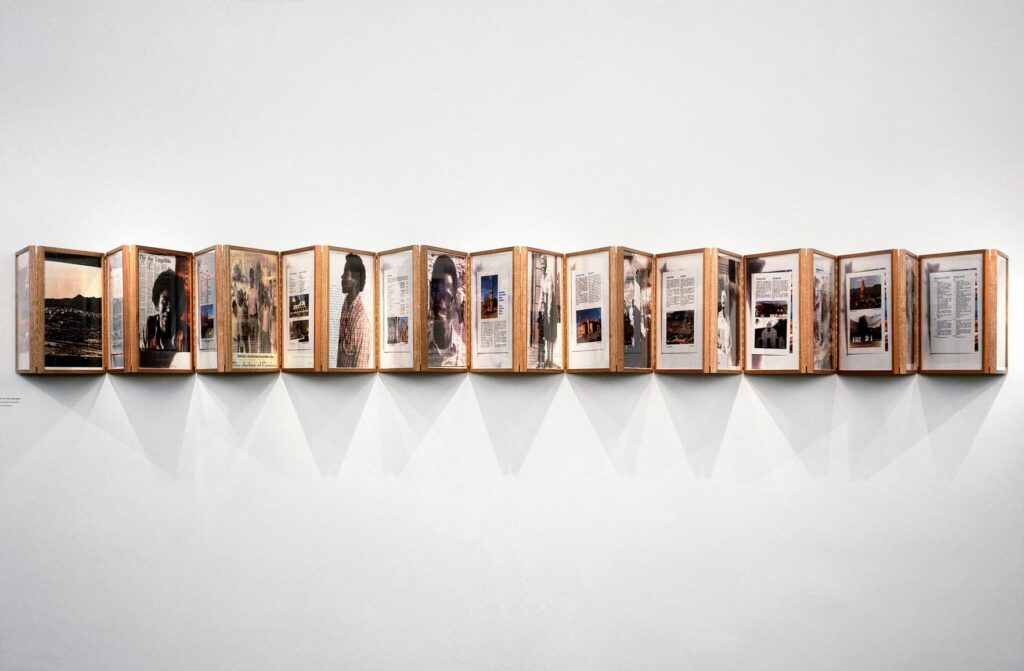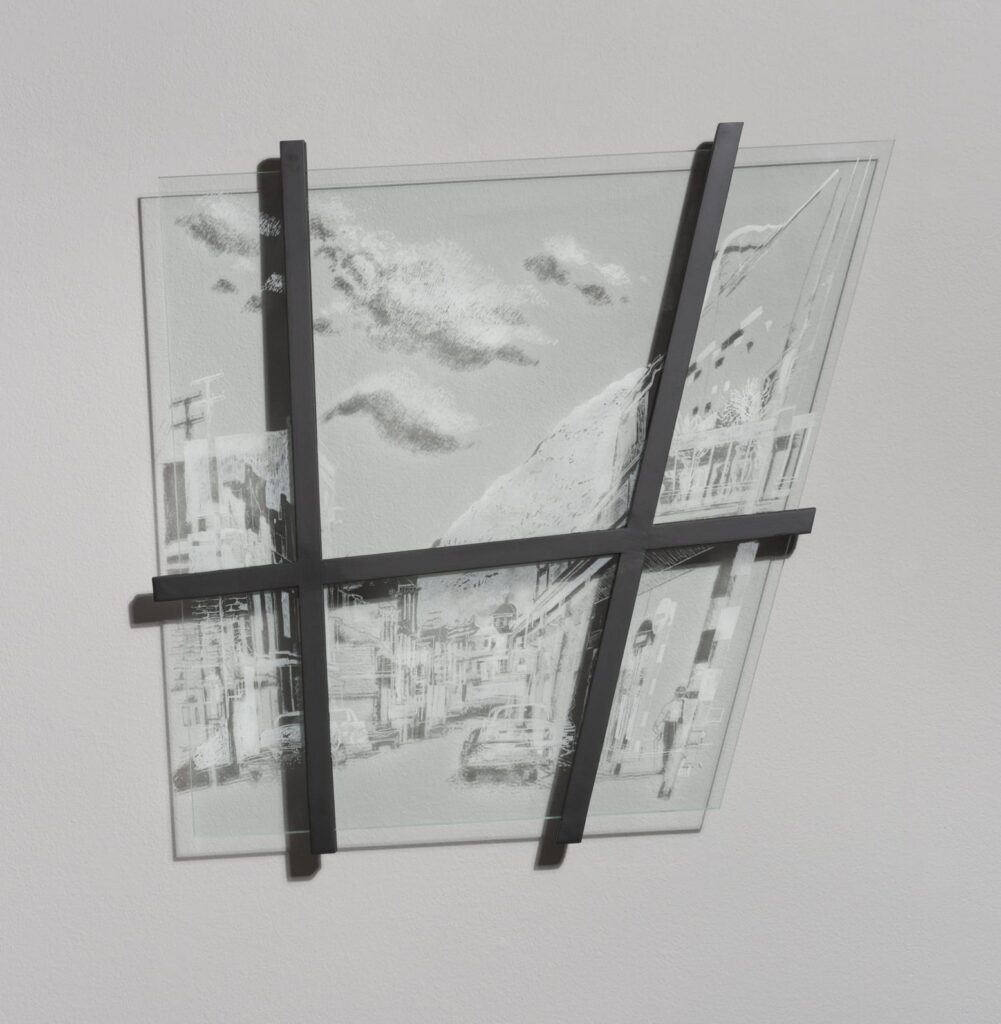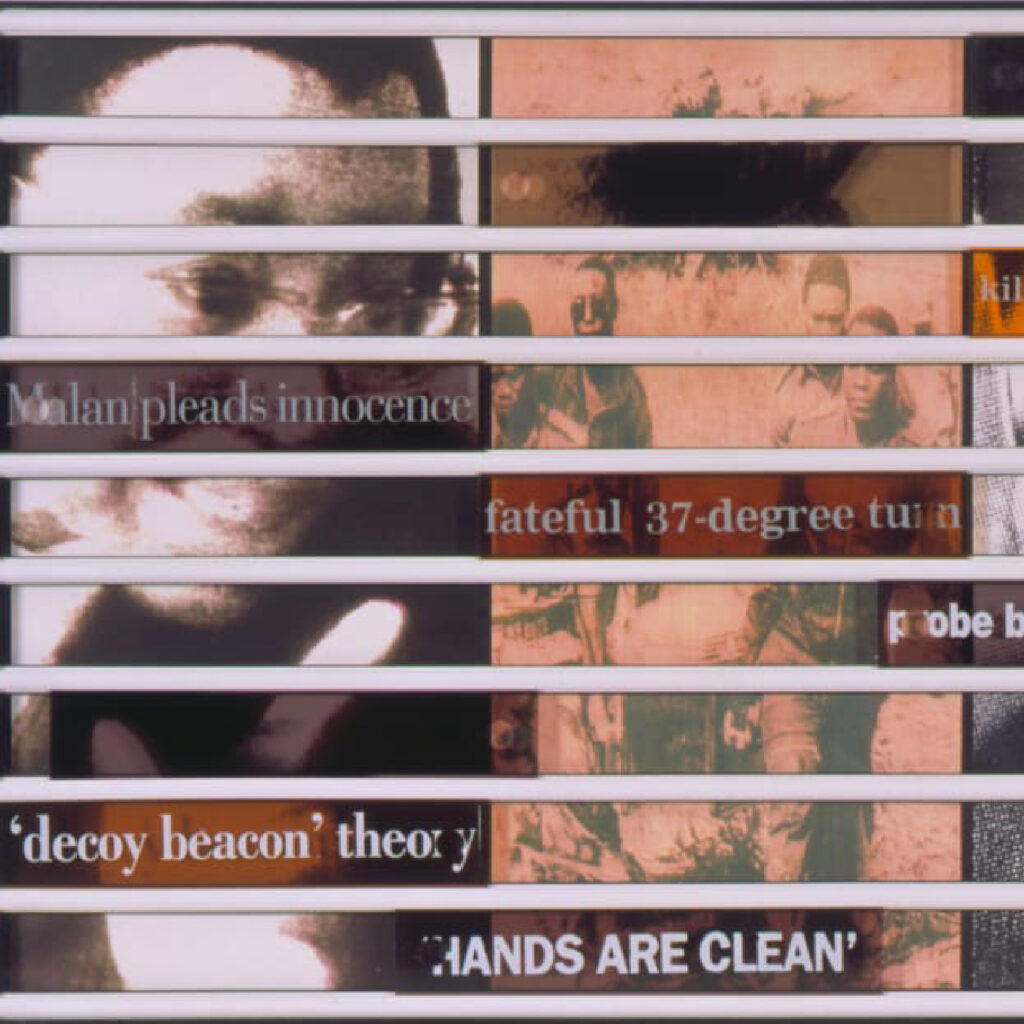
Goodman Gallery presents Testimony, a solo exhibition by British-South African artist Sue Williamson. This exhibition, which marks Williamson’s first solo presentation in the UK, spans the artist’s seminal 1990s series through to recently completed work. Williamson is part of a pioneering generation of South African artists who challenged the apartheid government from the 1970s and has been represented by Goodman Gallery from 1993 – the year she held her first solo exhibition at the gallery for which she won the 1994 Vita award for best exhibition in the country in the previous year.
Trained in New York as a printmaker, Williamson works across media with a focus on installation, photography and video and engages with themes related to trauma, memory and identity.
Beginning this exhibition is Truth Games (1998), an interactive series of works in which the artist highlights a series of cases brought before South Africa’s Truth and Reconciliation Commission (TRC). As an activist, Williamson closely followed the TRC hearings and was directly involved with one of the cases.
Truth Games brings together courtroom photographs of accusers and defenders, positioned across from one another and divided by an image reflecting the crime, with all imagery and text drawn directly from newspaper accounts of the hearings. Phrases given in evidence are printed on perspex slats, piecing together accusation and defence. Faced with the terrible truths of apartheid brutality broadcast by the TRC hearings, many white South Africans said ‘I did not know’. Truth Games allows viewers to engage directly with the work, sliding the slats over the images to reveal what is beneath.
In 2015, the student protests that swept through South Africa made it clear that many of apartheid’s wounds remain unhealed. For Williamson, a new consideration of the long-term effect of the violence of apartheid and the role of the TRC became necessary.
The dual channel video work It’s a pleasure to meet you (2016) brings two young people – Candice Mama and Siyah Ndawela Mgoduka – into dialogue for the first time whose fathers had been killed by the apartheid police. The title of the work references the greeting that Mama’s father’s killer, apartheid assassin Eugene de Kock, gave each member of her family when they visited him in jail.
The screening of It’s a pleasure to meet you is alternated with the follow up video, That particular morning (2018), which was made in collaboration with Mgoduka. Here, Mgoduka is again a participant, and, on camera with his mother Doreen, he vocalises the questions about his dead father that he has held back for years. The work brings into focus the profound impact of this familial rupture and highlights differing generational attitudes towards the process of forgiveness initiated by the TRC hearings.
A Tale of Two Cradocks (1994) also focuses on a story of familial loss during apartheid. Seen from one angle, the work presents the tourist guidebook of the little town of Cradock. From the reverse angle, the story unfolds of Matthew Goniwe, a charismatic teacher and community leader who was targeted and killed by the apartheid government in 1985.
Testimony also features Williamson’s more recent series The Lost District (2016 -). Set against a wall drawing of the map of the old district, hand-engraved glass ‘windows’ and painted brass signage works derived from photographs recall the daily fabric of life in District Six. The delicate white lines of Williamson’s incised glass show up in the crisp grey shadows cast on the wall behind the work: the shapes of these buildings’ re-inscribed presence – like the accounts of the collaborators in Williamson’s films – offer renewed clarity to a history not so far removed from our present.
Works

